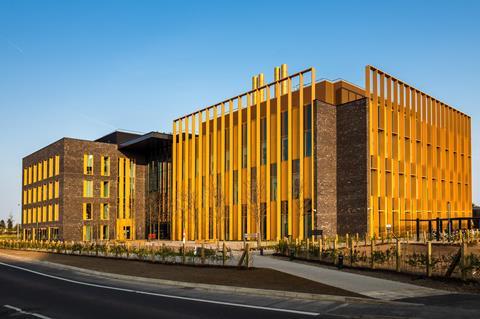US group Danaher has completed its takeover of Abcam, a UK firm specialising in antibodies and life science consumables, for $5.7 billion (£4.5 billion) in cash. Abcam is now a wholly owned subsidiary of Danaher.
The sale had faced opposition from Abcam founder Jonathan Milner, who accused the Abcam board of poor performance during the summer. Milner, who owned around 6% of the company, issued an open letter to shareholders in September in response to the announcement of the deal in August.

He argued that Danaher’s offer of $24 per share was ‘derisory’ and ‘grossly undervalues Abcam,’ and noted that his campaign for change – and reinstatement as chief executive – launched in May had caused the share price to rise 47%, from around $15 to $22. He complained that Danaher had cut Abcam’s growth estimates.
Milner spun out Abcam in 1998 from his research at the University of Cambridge. He stepped down as chief executive in 2014, but remained on the board until 2020.
Abcam provides researchers and clinicians with reagents, assays, biomarkers and antibodies. Big players in this sector include Thermo Fisher Scientific and Merck Millipore, but Abcam had positioned itself as a leader in research-use-only antibodies.
In an open letter in October, Milner wrote that Abcam has been undervalued compared to peer companies such as Repligen, Maravai Lifesciences and Illumina. He said other shareholders and analysts shared his concerns.
Catherine Ramsey Schulte, senior research analyst at Baird, described Abcam as ‘an attractive addition to Danaher’s portfolio’ and the valuation of the firm as appropriate. She said important drivers in Abcam’s sector include government funding for life science research, pharma R&D and biotech funding levels.
In an investor note in late October, JP Morgan praised Danaher’s investments, writing that its ‘[Mergers and acquisitions] track record is among the best in the sector, a key to driving above-average earnings growth’.
Biotech funding in general has come under pressure over the last year, with the amount companies have attracted from investors dropping significantly in 2022. Albeit, this follows two years of extremely elevated investment levels in 2020 and 2021, according to Ramsey Schulte.
Some pharma companies have also cut back on R&D, which as a knock-on effect on businesses such as Abcam and Danaher that supply them with consumables.